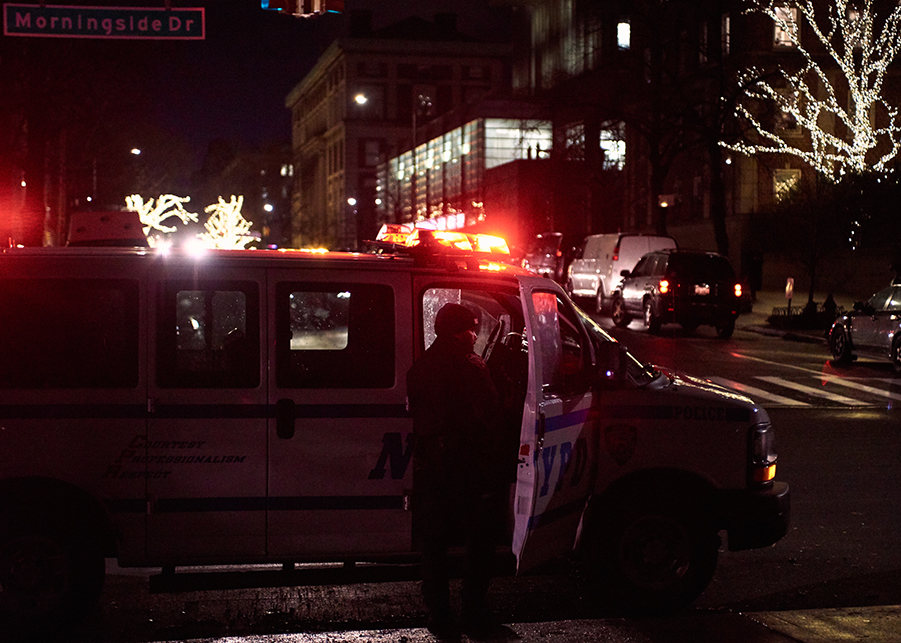NEW YORK — The impact of the Tessa Majors case could shape juvenile justice policy nationally, said the director of the Research and Evaluation Center at the John Jay College of Criminal Justice.
“It’s not just New York,” Jeffrey A. Butts said. Politicians will try to use the case to win over the hearts and minds of voters who might not know about raise the age yet, and validate those who already don’t support it, he said. “If the case becomes famous, and it’s already pretty famous, and if the young person turns out to be involved and they’re responsible, the risk is that, politically, people ... can use it to say that we need to maintain tough approaches.”
 “Just talking in abstract terms about good policy doesn’t move the public,” Butts said. “So they will try to move the public by attaching it to a particular case.”
“Just talking in abstract terms about good policy doesn’t move the public,” Butts said. “So they will try to move the public by attaching it to a particular case.”
A 13-year-old is accused of taking part in the deadly stabbing of Barnard College student Tessa Majors in Morningside Park last week.
Family Court Judge Carol Goldstein ruled after a probable cause hearing Tuesday that the case will proceed in family court, at least for now. But that might not be for long. Matthew Bogdanos, a veteran prosecutor for theManhattan District Attorney’s Office who has long experience dealing with murder cases, was present at the hearing — a sign that the case might soon be transfered to adult court.
Formal charges against the teenage suspect were yet to be filed as of Tuesday night. If the 13-year-old is charged with felony murder and other criminal charges, the Manhattan District Attorney’s office will likely take over the prosecution.
The teen will remain in jail until the next hearing, which is Dec. 23.
Butts pointed out that most states included an exception for murder when they drafted their juvenile codes several decades ago.
“It just reveals that the justice system is about retribution, and not just about public safety,” he said. “If it was about public safety, you wouldn’t focus so much on what the act was. You would focus on who the young person is, what the circumstances were, what social resources they have, their family structure ... is this young person redeemable? Or do we just throw their life away?”
Teen was questioned without lawyer
The teen’s attorney suggested at the Tuesday hearing that police violated the boy’s constitutional rights during a harsh interrogation when no lawyer was present.
Hannah Kaplan, a public defender with The Legal Aid Society, challenged the reliability of the boy’s statements, a core element of the prosecution, suggesting detectives badgered him into making self-incriminating statements.
Detective Wilfredo Acevedo, who questioned the 13-year-old suspect, said he told detectives he entered Morningside Park on the evening of Dec.11 with two schoolmates from P.S. 180 Hugo Newman, a school located not far from the crime scene, with the intention of robbing people. The trio followed a man up the park's stairs to rob him, but decided not to at the last moment.
One of the boys dropped a knife. The 13-year-old picked it up and gave it back to him. Shortly after, they approached Majors to rob her; she resisted. That’s when one of the teens began stabbing her repeatedly. As the blade pierced her face and torso, feathers flew out of her ripped jacket, the suspect told police.
Kaplan suggested during Acevedo’s cross-examination that detectives tried again and again to get the boy to say he was aware his friends approached Majors determined to rob her, an element that makes him potentially culpable of felony murder.
The suspect said multiple times he was in the park with friends to rob people, but didn’t know his friends were about to rob Majors.
“During the interrogation, my client told you he did not know they would rob Ms. Majors, is that correct?” Kaplan said
“That is correct,” Acevedo replied.
“He told you that 10 times in different ways, correct?”
“That is correct.”
